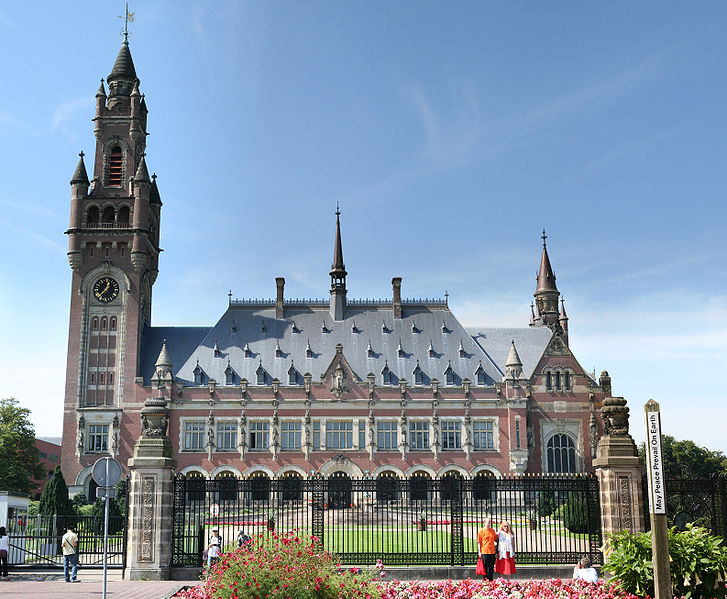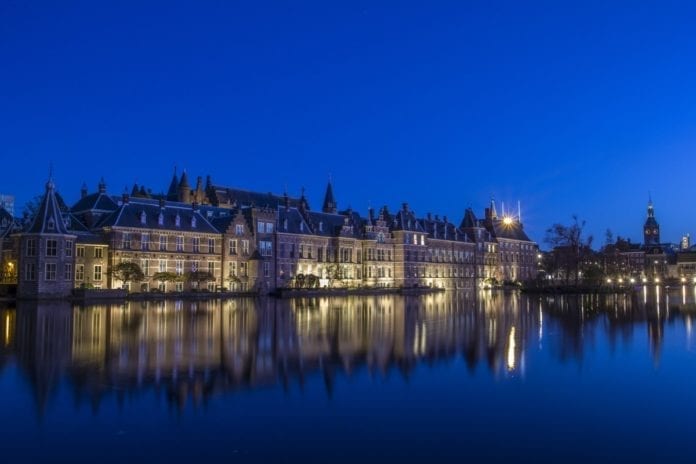Did you know where The Hague’s peace and justice vocation comes from? Let’s take a look at some of the organizations that made it the international city of peace and justice.
For many, the Netherlands is a picturesque land, with windmills and oliebollen stalls, bikes and colourful tulips. For others, it is the country of innovation, progressiveness and amazing engineering feats. However, there is yet another ingredient in the Dutch identity mix that makes the Netherlands famous worldwide: being home to the international city of peace and justice.
Dutch politicians argue that The Hague’s vocation as the international city of peace and justice is not something new. In fact, they argue that it started 750 years ago when famous jurist Hugo Grotius wrote The Freedom of the Sea, known as the basis for modern international law. Since then, other great minds lived and worked in The Hague. As such, it was only logical that organizations should follow.
The tradition picks up pace
In 1893 Tobias Asser, a Dutch lawyer and legal scholar who won the Nobel Peace Prize in 1911, founded the Hague Conference on Private International Law. The Peace Conferences that followed led to the creation of the Permanent Court of Arbitration, in 1899. The court mediates disputes between countries and sits on The Hague’s Peace Palace, created especially for it.
The beautiful (and open to visitation!) Peace Palace is also home to The International Court of Justice. It is the highest legal body of the United Nations (U.N) and the only main branch of the U.N that is not located in New York. Founded right after World War II, the court is responsible for settling legal disputes submitted by countries, as well as for giving opinions on legal issues. That’s why The Hague markets itself as the ‘second United Nations city‘, as well as the international city of peace and justice.
International law’s modern revival
Around the millennial generation birth era, right after the end of the Cold War, International Law went through a revival. The period saw the creation of many, and sometimes groundbreaking, international organizations: Europol in 1994, the Organisation for the Prohibition of Chemical Weapons (OPCW) in 1997, and the International Criminal Court in 2002 are some examples. They are all based in The Hague, contributing to the solidification of the city’s reputation as the international city of peace and justice.

A major contributor to this branding of The Hague is the International Crime Court (ICC). It’s responsible for judging some of the most horrific international crimes. Genocide and crimes against humanity such as torture, rape and sexual slavery, are some of the offenses the court can bring to trial.
Although the court has condemned some really bad guys, its reach is limited. It can only trial crimes committed by, or in the territory of, countries that have accepted the court’s authority. Notable absences in this category are the United States, Israel and Iraq.
International knowledge centre
Today, The Hague is home to 160 International Organizations and think tanks have flourished in the city as a result. The Hague officials have branded it an “international knowledge centre in the field of peace and justice”, and one can see their point. The Hague hosts the Netherlands Institute of International Relations ‘Clingendael’, The Hague Academy of International Law, The Hague Centre for Strategic Studies, and Campus The Hague, the second home of Leiden University.
Economic upside
There is something rewarding about being able to say that on the heels of a long tradition, the country you now live in is host to so many organizations that uphold fundamental human values. However, if you’ve been living here long enough you must know by now there’s also probably a smart financial angle to it.
International jobs in The Hague skyrocketed since the establishment of these organizations. The spending power of those employees, coupled with that from their organizations, supports almost as many jobs.
READ MORE: 7 things you didn’t know about The Hague
The international city of peace and justice title is a major selling point that attracts highly trained talent, as well as tourists. It is also arguably the crown jewel of the country’s clean-cut progressive image. An image needed to counter the legal pot and prostitution combo, usually used to describe what makes The Netherlands such a forward-thinking nation.
Have you been to the international city of peace and justice? What did you think?
Feature Image: Rob Van Der Meijden/Pixabay
Editor’s Note: This article was originally published in January 2020, and was fully updated in September 2020 for your reading pleasure.
